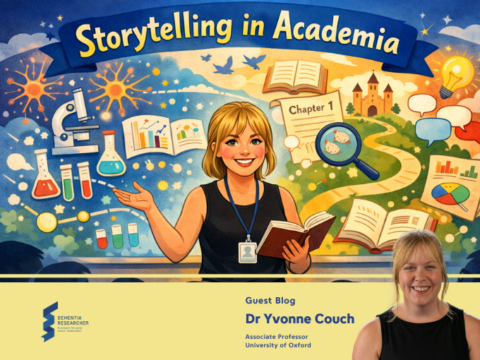I was recently asked to peer review a grant by a major UK research funder. This was not something I had been asked to do before, and it made me realise the sheer number of tasks required of us in academia that we simply get zero training or guidance on. In this blog, I will pull together my experience of grant peer reviewing and provide guidance that will hopefully be helpful to other new reviewers.
Once I had confirmed the peer review request was legitimate, and not part of the litany of spam we get that leaves us suspicious of any unexpected emails requesting anything from us, the next question was: “why me?” It is one of those strange moments in academia where you suddenly realise you are now recognised, at least by someone, to be an expert in your field, which is a marker of the progress you’ve made. A similar thing happens when you are asked to peer review a manuscript for the first time. There is a real fear of getting it wrong, making a mistake, and looking as though you’ve not understood the work you have been asked to review, which is particularly overwhelming for those who may be prone to feelings of imposter syndrome. The temptation is to turn down the peer review request, say you lack the specific expertise needed for a comprehensive review. After all, peer reviewing grants and manuscripts are part of many thankless tasks in academia which go unrecognised and uncompensated. So why do it?
Before answering this question, I want to reiterate that PhD students and postdocs typically get no formal training in peer review, either for manuscripts or grants. Some PIs will help their PhD students and postdocs develop these skills informally, through reviewing published papers as part of a journal club or assisting the PI with a manuscript review they have been asked to complete. Some institutions have developed workshops to formalise this training. However, these are all examples of best practice and are certainly not the norm. Many aspects of academia rely heavily on peer review, so why don’t we receive any formal training in it, particularly if we’re expect to become successful academics?
So back to my question of why we do it. There are a number of reasons, but two stand out for me that allow me to not think of peer reviewing as a thankless task, but as something which can be beneficial to me. Firstly, it presents an opportunity for hands on development. The first manuscript I reviewed was one sent to me by one of my PhD supervisors. The review request had been sent to her, and she asked me to review it on my own, then discuss it with her, before she would then submit her review to the journal. This experience meant that when I was personally sent a peer review request, I knew what to look out for and how to write my review. Perhaps more importantly, it helped develop my own writing because I could put myself in the position of those who would be reviewing my work. The process is similar for peer reviewing grants and I have gained insight into what qualities make a good grant application. This is an officially recognised learning strategy. I am currently enrolled on a PGCert in Learning and Teaching in Higher Education qualification where we recently discussed how “peer assessment is an important stimulus to self-assessment”. This means that taking on the role of assessor (in this case, peer reviewer) is an effective strategy for learning or improving something, because it is easier to make sense of assessment/review criteria when examining the work of others, before then applying it to our own work.
The second reason for participating in the peer review of grants is for career progression. One criterion for gaining academic promotion is for me to demonstrate “wider contribution to the discipline” such as “refereeing on behalf of journals and funders”. Eligibility for career progression is directly tied to being recognised by other researchers as an expert in my field. So despite the lack of recognition and remuneration, there are legitimate motivations for taking part in peer review, particularly of grant applications.
As someone brand new to peer reviewing grant applications, I would have found it beneficial to have received some formal training in the process and how to formulate responses, for example. So what guidance can I provide new academics who might find a grant review request land in their inbox?
- Check you have the expertise. You will not be expected to be an expert in everything covered in the grant application, so be clear on which aspects you feel you can adequately review, such as a particular methodology or research topic, for example.
- Time management. Writing a grant takes a great deal of time, and so does reading and reviewing someone else’s. An initial skim of the proposal before looking at each section in depth can help give you a broad understanding of the aims and methods. Ensure you make time in your schedule to read the grant application, formulate your position on it, and write your review.
- Familiarise yourself with the funder requirements. Each funding scheme will have specific eligibility requirements, but it is likely that programme managers will have screened applications prior to the review stage. However, there may be wider policy requirements which you can check the application for or query if you think they haven’t been addressed. For example, the Medical Research Council recently introduced the requirement for both sexes to be used in the experimental design of grant proposals unless strong justification for single-sex studies could be provided. This was in response to the historical use of males in research which likely contributed to bias and poor translation of preclinical to clinical research.
- Be specific. It is tempting to overly justify a statement or query you want to make, particularly if you’re worried whether it’s valid. However, if there is too much text your point can get lost, so it is much better to be specific about the point you want to make, and evidence it concisely with an example if needed.
Peer reviewing grant applications can be challenging and time consuming. However, the more exposure you get to grants and evaluating them with a critical eye, the more successful you will be in developing your own grant writing skills.

Dr Kamar Ameen-Ali
Author
Dr Kamar Ameen-Ali is a Lecturer in Biomedical Science at Teesside University & Affiliate Researcher at Glasgow University. In addition to teaching, Kamar is exploring how neuroinflammation following traumatic brain injury contributes to the progression of neurodegenerative diseases that lead to dementia. Having first pursued a career as an NHS Psychologist, Kamar went back to University in Durham to look at rodent behavioural tasks to completed her PhD, and then worked as a regional Programme Manager for NC3Rs.

 Print This Post
Print This Post





Very Useful